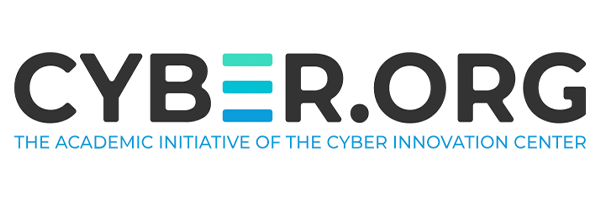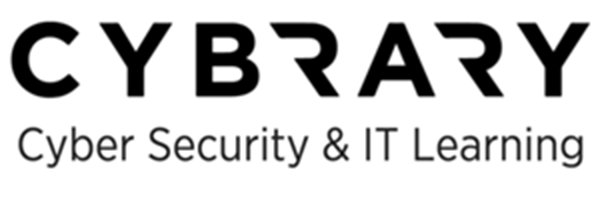Discover how to start building a career path in one of today’s most in-demand fields.
NWCyber can help by:
- Advising on local colleges with reputable programs
- Advising on which college classes to take
- Connecting you to local cybersecurity organizations
- Locating shadowing opportunities or internships
- Helping you enroll in cybersecurity competitions
- Answering questions regarding future career possibilities

Did you know...
You can make a difference
We are here to help
FAQ
A cybersecurity career involves protecting systems, networks, and data from cyber threats. It encompasses various roles, such as security analysts who monitor for breaches, incident responders who manage and mitigate attacks, and penetration testers who evaluate system vulnerabilities. Cybersecurity professionals work in diverse environments, including government agencies, corporations, and non-profit organizations.
Absolutely! Cybersecurity is not just about coding and hacking. Many roles focus on communication, management, problem-solving, and even creativity. You could work in areas like policy development, risk assessment, incident response, project management, or user education. The field offers diverse opportunities, allowing you to find a role that aligns with your strengths and interests.
Absolutely! Cybersecurity offers a wide range of opportunities for individuals with diverse interests and skills. Many positions allow you to work on projects that align with your passions, whether that’s ethical hacking, cybersecurity education, or developing security policies.
Start by exploring your interests within cybersecurity and researching different roles. Taking technology-related courses and engaging in projects like building your own lab can also help you build valuable skills and connections in the field. To get started, explore online resources, join cybersecurity clubs near you, and participate in local workshops and events. Many organizations also offer free online courses. There are also "Capture the Flag" competitions and Cyber ranges to practice your skills.
Focus on courses related to cybersecurity fundamentals, ethical hacking, and programming languages. Specialized courses can further enhance your skills and knowledge in specific areas of interest.
There are 3784 cyber jobs in Oregon, 2314 jobs in the Portland/Vancouver area.
There are numerous job roles in cybersecurity, including security analyst, penetration tester, cybersecurity engineer, and incident responder. Salaries can vary widely based on experience, education, and location. Entry-level positions typically start around $60,000 to $80,000, while specialized roles can earn significantly more, especially with experience and certifications.
Yes, building your own lab is an excellent way to demonstrate your initiative and hands-on skills. It shows potential employers that you are proactive and have practical experience, which can be valuable when applying for jobs or internships.
Yes! Many organizations offer job shadowing and internship programs specifically for college students interested in cybersecurity. These opportunities provide valuable real-world experience, mentorship from professionals, and the chance to explore different roles in the field
In Oregon and SW Washington, several organizations and programs provide internships for college students:
- Portland General Electric (PGE) – PGE offers internships in IT and cybersecurity, particularly in critical infrastructure protection, ideal for students studying cybersecurity or related fields.
- Bonneville Power Administration (BPA) – As part of the federal government, BPA offers cybersecurity and IT internships for college students. These internships provide experience in federal infrastructure protection and cybersecurity operations.
- Intel Corporation – Intel's Oregon headquarters has an extensive internship program for students in cybersecurity and IT. These internships focus on innovative technology and cybersecurity solutions.
- Cybersecurity and IT Camps and Internships through Local Colleges – Community colleges like Portland Community College (PCC) and Clark College in Vancouver, WA, frequently partner with local companies to offer internships and hands-on workshops in cybersecurity. These programs allow students to work directly with cybersecurity experts.
- Oregon Cybersecurity Challenge Cup – Some local universities, like the University of Oregon, host cybersecurity competitions that can lead to internship opportunities with participating companies.
Other companies and organizations in Oregon and SW Washington, including utilities and tech firms, also offer internship programs and opportunities to gain hands-on experience in cybersecurity. Reaching out to your college's career services department or local companies is a great way to discover available internships.
- Portland Community College (PCC) (link to info for Associate of Applied Science in Cybersecurity and a Cybersecurity Specialist Certificate)
- Mt. Hood Community College (MHCC) (link info for Associate of Applied Science in Cybersecurity and Networking)
- Linn-Benton Community College (LBCC) (Link to Cybersecurity and Systems Administration program)
- Chemeketa Community College (link to Cybersecurity Option within its Associate of Applied Science in Computer Systems program)
- Clackamas Community College (Link Computer Science and Cybersecurity program)
- Central Oregon Community College (COCC) (Link to Associate of Applied Science in Computer and Network Administration)
- Portland State University (PSU) - Bachelor of Science in Cybersecurity
- Oregon State University (OSU) - Bachelor of Science in Computer Science with a focus in Cybersecurity
- University of Oregon (UO) - Bachelor of Science in Computer and Information Science (Cybersecurity Electives)
- George Fox University - Bachelor of Science in Computer Science with Cybersecurity Emphasis
- Western Oregon University (WOU) - Bachelor of Science in Information Systems (Cybersecurity Focus)
- Washington State University Vancouver (WSU Vancouver) - Bachelor of Arts in Digital Technology & Culture (Cybersecurity Courses)
- Pacific University - Bachelor of Science in Computer Science (Cybersecurity Electives)
- While not always required, obtaining certifications can significantly enhance your employability and demonstrate your knowledge and skills to employers. Popular certifications include CompTIA Security+, Certified Ethical Hacker (CEH), and Certified Information Systems Security Professional (CISSP).
Capture the Flag (CTF) competitions are hands-on challenges that allow participants to practice their cybersecurity skills in a gamified environment. These competitions often involve solving puzzles, hacking into simulated systems, and collaborating with others, providing valuable experience and networking opportunities. Here are some CTFs to get you started:
Cybersecurity Jobs: Need a Degree
Cyber Instructor – BA
Cryptographer – MA
Cyber Defense Incident Responder – not required but BA encouraged
Cyber Forensics Expert – BA
Cybersecurity Engineer – BA
Multi-disciplined Language Analyst – MA
IT Project Manager – BA
Information Systems Security Manager – BA
Software Developer – MA
Cyber Operator – BA
Information Assurance Analyst - BA
Pen Tester – BA
Threat and Warning Analyst – BA
Chief Information Security Officer – MA + certifications
Faciility Security Officer – BA/BS + certifications + security clearance
No Degree – Certs and Experience
Cyber Crime Investigator
Technical Support Specialist
Vulnerability Assessment Analyst – real world experience
System Administrator, BA recommended
System Testing and Evaluation Specialist – certs recommended
Knowledge Manager – BA recommended, not required
Cyber Ops Planner – BA Recommended
Cloud Architect – Certification such as AWS Cloud Architect required










